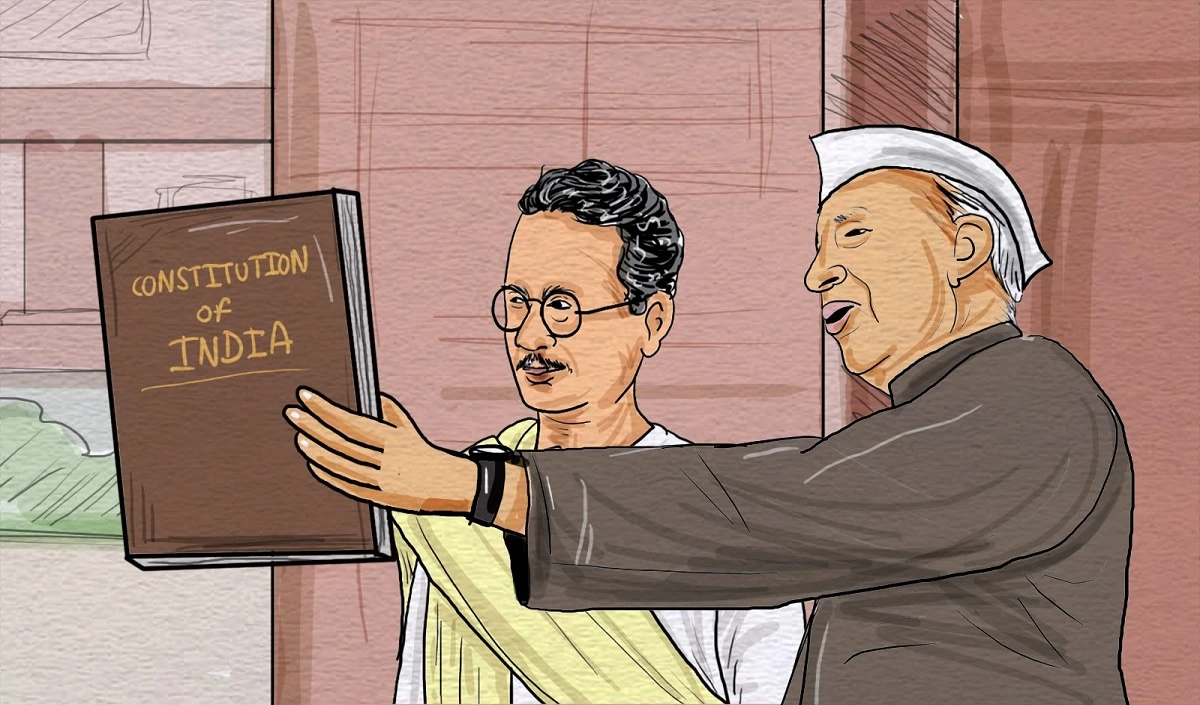It is a few weeks before India’s independence, Pandit Jawaharlal Nehru invites BR Ambedkar to join his new cabinet as Law Minister. Unlike most other members of the cabinet, Ambedkar was not part of the Congress Party nor did he share the values in which Nehru and other senior leaders of the Indian independence movement believed. It was Mahatma Gandhi who believed that it was not the Congress but the whole of India that had achieved independence, with everyone participating in it. Therefore, outstanding men of other political leanings should also be asked to lead the government, especially Ambedkar.
Also read: know your constitution Chapter 3 | Did Baba Saheb alone make the entire Constitution? Teh Tak
hindu code bill
Ambedkar is best known for his role in drafting the Constitution, but even before drafting he had begun work on the Hindu Code Bill, which attempted to modernize several sections of traditional Hindu law. The Bill was introduced in Parliament in April 1947, addressing laws relating to property, marriage, divorce, adoption and order of succession. What is noteworthy is that Ambedkar described the law as “the greatest social reform measure ever undertaken”. But while Nehru believed that religion should exist only in the private sphere, many members of Parliament disagreed. In a journal article titled Jawaharlal Nehru and the Hindu Code, historian Reba Som writes that members of Nehru’s government strongly opposed the Hindu Code Bill. Nehru decided to break the Code into four separate parts to facilitate their passage. However, by 1951, the bills were not passed and Ambedkar became frustrated and resigned as Law Minister. Where the difference of opinion between the two men was not on ideology but on implementation. Nehru famously declared in the House that in the case of the Hindu Bill, “I stand by everything that has been said by the Law Minister.
Contents of the letter written by Rajendra Babu to Nehru
On September 14, 1951, Rajendra Prasad had written a letter to Pandit Nehru in which he opposed the introduction of Hindu Code Bill only for Hindus and said that if the provisions being made are beneficial and beneficial for most of the people then only one community would be benefited. Why is it being brought to the people and why should the rest of the community be deprived of its benefits. He had said that he would also examine the bill on merit before approving it. Nehru also sent him his reply on the same day in which he said that what you have said about examining the bill on its merits before approving it is a serious issue. This may create a situation of conflict between the President, the Government and the Parliament. The President does not have the right to go against the bill passed by the Parliament. Dr. Prasad again wrote a letter to Nehru on 18 September in which he enumerated the powers given to the President under the Constitution and also said that he would not like to create a conflict in the matter. When the matter reached the rights and finally the opinion of the Attorney General was taken, the matter was calmed down.
Also read: know your constitution Chapter 4 | What happened regarding the issue of reservation in the Constituent Assembly? , Teh Tak
Hindu ‘warriors’, war with RSS
Even before Nehru and Ambedkar tried to pass the Hindu Code Bill in Parliament, a resistance ‘movement’ led by Hindu groups was already underway. The bill was being discussed in March 1949 in the Constituent Assembly, established to draft the Constitution. A group called the All India Anti-Hindu Code Bill Committee was formed to challenge the proposed law. In his book India After Gandhi, historian Ramachandra Guha writes of how religious figures and conservative lawyers called hundreds of meetings across the country and presented themselves as righteous warriors fighting a crusade. He argued that the government had no right to interfere with Hindu laws, which were based on religious scriptures. The Rashtriya Swayamsevak Sangh (RSS), says Guha, “put its full weight behind the movement”. On 11 December 1949, it held a public meeting at Ram Leela Maidan in Delhi, where one speaker after another condemned the Bill. One called it an ‘atomic bomb on Hindu society’. On 12 December 1949, when deliberations on the bill resumed, about 500 people protested outside the Parliament House.
How did the discussion about UCC begin?
As the Sangh Parivar’s resistance to Hindu personal law reforms reached its breaking point, they strategically shifted their focus. He started advocating for a Uniform Civil Code, especially with the aim of reforming Muslim personal law. Hindu right-wing opponents of the Hindu Code Bill, both within and outside the Congress, knew that the Nehru government would be unwilling to push for reforms in Muslim personal law. He was not sincere in pursuing a Uniform Civil Code. The opposition to the Hindu Code Bill by the majority community in the 1940s and 50s was as strong as the opposition to the UCC is by the minorities today.





